
All images courtesy of Jordan Rudess

For those who have witnessed the astounding, visionary splendor that is Dream Theater in the live setting, it’s well known the importance of the layered, and cascading textures keyboardist Jordan Rudess provides to the band’s larger-than-life sound.
For Ruddess, his journey with the mighty Dream Theater began in 1998, after he was asked to join the band in the wake of Derek Sherinian’s departure. For Dream Theater, while its 90s albums were watershed, with the classically trained Ruddess aboard, the best was truly yet to come. Rudess’ prowess as an able songwriter and virtuoso pianist provided an immediate density and ethereal quality to Dream Theater’s already innovative approach.
In the twenty-four years since, with Rudess aboard, Dream Theater has released eleven monumental studio efforts, albums which have always been of a progressive mindset, acutely pushing listeners to their collective limits, and in doing so, heroically broadening the horizons of the zeitgeist’s musical consciousness.
Albums such as Metropolis Pt. 2: Scenes from a Memory (1999), Six Degrees of Inner Turbulence (2002), Train of Thought (2003), Black Clouds & Silver Linings (2009), and Distance over Time (2019) are forever engrained in our communal foreground. With Dream Theater’s most recent, and now Grammy award-winning effort, A View from the Top of the World (2021), the band humbly, yet triumphantly continues their quest to forever awaken, and heighten our senses.
I recently sat down with the accomplished pianist, and general metal master, Jordan Rudess, where, among other things, we touched on Dream Theater’s ongoing tour, the writing, and recording of A View from the Top of the World, the band’s recent, and long overdue Grammy award for “The Alien,” Jordan’s solo work, and a whole lot more.
Andrew:
Jordan, thank you for taking some time. Let’s dig right in. Describe the crowd response and what it’s been like getting back on stage after being off the road for so long.
Jordan:
We’re heading to Europe in less than a week to start playing the next leg of the tour there, and we finished our North American run a few weeks ago. When the tour started, it was a little frightening because of what was going on. We were actually wondering if anybody was going to even come out to the shows at all. But I’d say within about a week of us actually being out there on a road, the crowds picked up beyond what we ever thought was possible. Honestly, it’s been great, and I think people have been dying to see and hear live music again. I think people just wanted to get out and have fun, and as the shows went on, the audiences have just been totally into it.
Andrew:
I caught your show in New York last month, and it was incredible. What I noticed was how dynamic the setlist was. What went into the song choices you’re currently adhering to?
Jordan:
You know, putting a setlist together is always very complicated, and there are a lot of factors to it. Things like: how long are we going to play? And of course, Dream Theater has long songs, so we don’t want to play like three songs and have the set end. [Laughs]. We also want to represent the new album, and in our case – in our world – people like to hear our new music, especially when an album has been so well received. So, we really wanted to balance all the factors, and that’s kind of how our setlist came together. And what’s funny is that since we do have really long songs, and people like it when we play our epics, it usually comes in around two hours anyway, which is perfect. Believe it or not, despite the long songs, when we play, it goes by very quickly.
Andrew:
One of the things I notice, beyond the band’s collective technical ability, is the cohesion between Dream Theaters members. If you can, speak on the chemistry that the band shares and how that might lend itself to any sort of improvisational moments in the live setting.
Jordan:
Well, let me start with the latter part of that question: when we play our shows, they’re very dialed in, so there’s not a whole lot of improvisational stuff going on. I would say within that concept, as a keyboard player, there is room for me to be a bit fluid. I always will take any chance I can to do something different on any given night, which might add different keyboard voicings to what I’m doing. But the show is very dialed in, and when you see a Dream Theater show, it’s almost like seeing a Broadway show where the lights are timed perfectly, and everything runs like clockwork. As for the relationship between us all, there is just such a great camaraderie, and we have a great time playing together. We really enjoyed the process of creating this last album, and going out there and being able to play those tunes live, it’s just awesome. It’s exciting. Especially things like playing epics such as “A View from the Top of the World.”

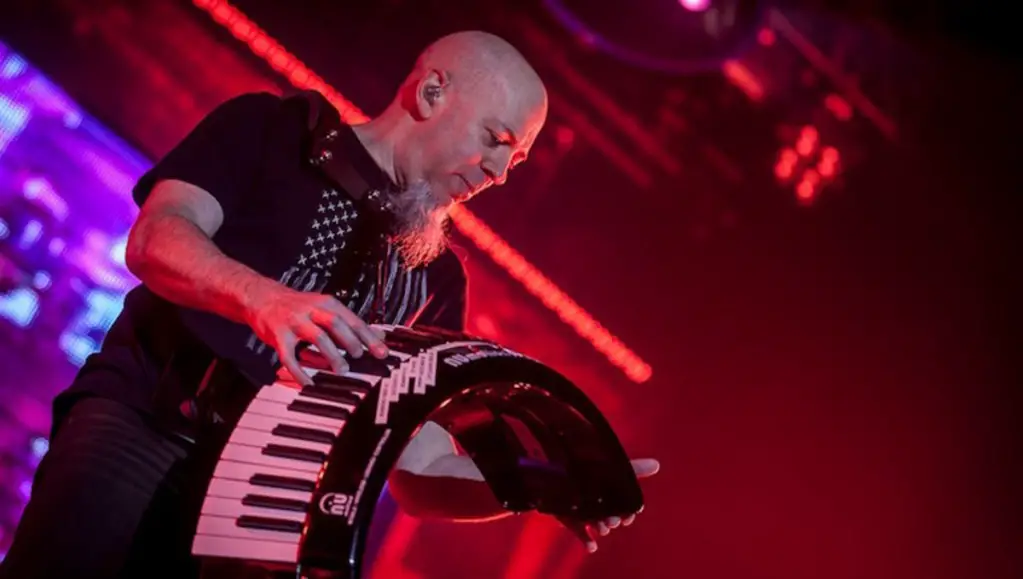
Andrew:
As a keyboard player, your importance to Dream Theater cannot be understated. From your perspective, how would you describe your role and approach in the live setting, and in general?
Jordan:
Well, it’s funny, I was just looking at this whole past Grammy thing, and looking at the other bands that were in our category who were nominees, and I think none of them had keyboard players. [Laughs]. But in Dream Theater, the keyboards are really important to the whole thing. Basically, my role is to be the orchestra, the choir, the sound effects, piano, the organ – anything keyboard-related. So, there is a lot of sonic territory that I have to cover, and that I do cover. Even with songs that aren’t so much in people’s faces, one’s that they might not even realize where I’m doubling the guitar, and I’m using these really heavy riffs to give it a little bit more depth, and character. I often use this keyboard sound that I created years ago – it’s this snarling sound – it goes really well with guitar and things like that. There are just so many things that are not obvious where it’s coming from, but they make a real difference. I’ll go back to something like the epic track on the new album, “A View from the Top of the World,” there’s a lot of patience and practice involved there. As matter of fact, when I was practicing at home, and I was just starting to develop the sounds, my wife was like, “What are you playing?” … “I’m playing the new Dream Theater song,” and she was blown away, she was like, “What?!” There are a lot of strings, there’s a lot of brass, there’s a lot of choirs, and I’m really busy because I only have two hands. In order to play all of those things at once – sometimes they’re all happening at once – it takes a lot of nuance and effort.
Andrew:
You touched on A View from the Top of the World. To that end, from your perspective, what would you say the through-line of the album is?
Jordan:
Well, it’s not a concept album, per se, but each song is kind of conceptual within itself. We tried to make an album that was still Dream Theater, but also had some songs that maybe were a little easier to digest, but also had some astounding things, like the title track. I think it’s a strong offering, and I think it lets people know who were these days.
Andrew:
In regards to the writing process for the record, what can you tell us about how the tracks came together?
Jordan:
The way that Dream Theater’s music usually comes together is we start with somebody’s seed idea. Maybe someone will come in with a cool riff, and then he’ll bounce it off of me or off the room, and that’ll inspire the next idea. One thing always leads to the next, but it all starts with that seed. When we were recording, one of us would literally walk into the studio in the morning, and get inspired by something, and when the other guys came in it was, “Hey guys, I’ve got this idea, let’s get the wheels turning.” One thing about Dream Theater as a band is we have no shortage of ideas. What’s a challenge for us is taking all the ideas that come to us during a writing session, and putting them together in a way that makes us feel like, “Okay, this is great.” It’s more about organizing all of the ideas that come in and come up in our heads. We are always saying to ourselves, “How do we want to organize them? Which ones do we want to use? Where do we want to use them?” So, it’s interesting that for some bands, the challenge is coming up with ideas, because that’s never been our issue. It’s the opposite. [Laughs].
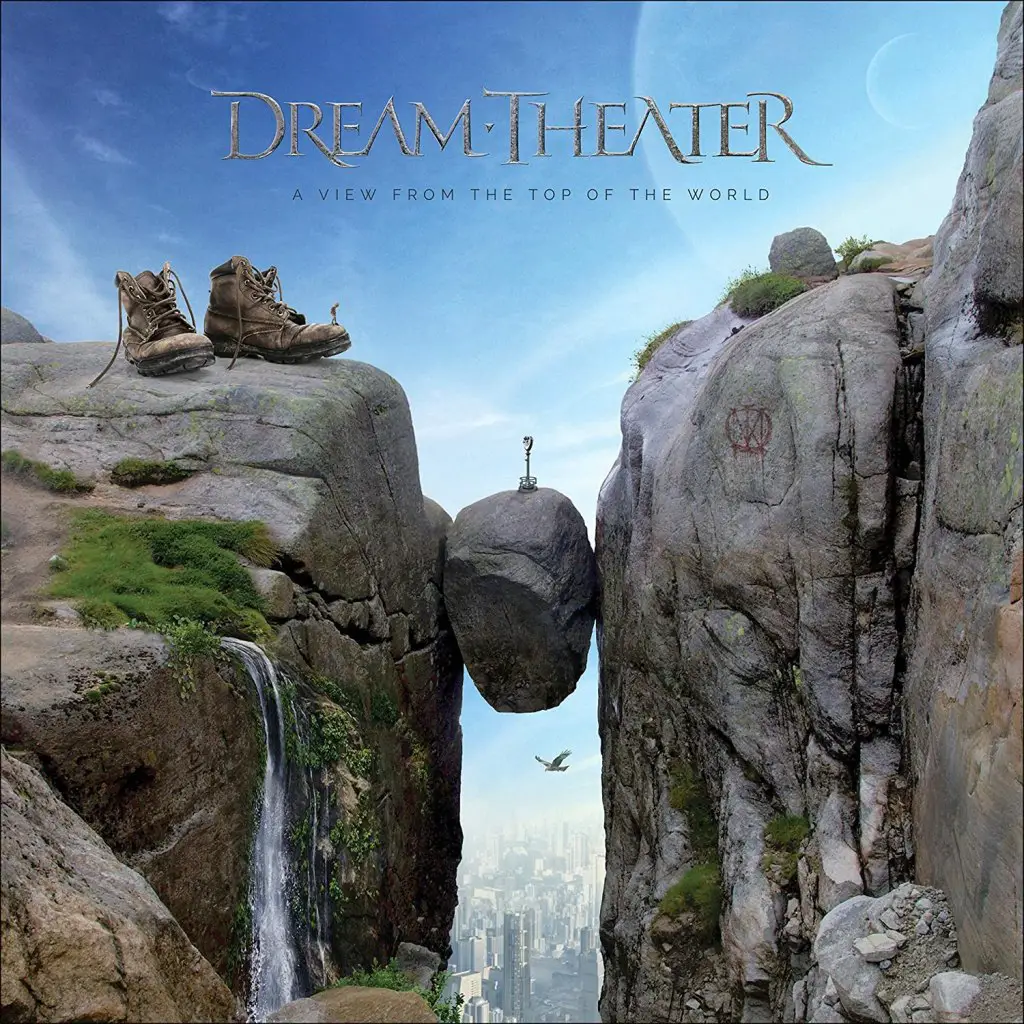
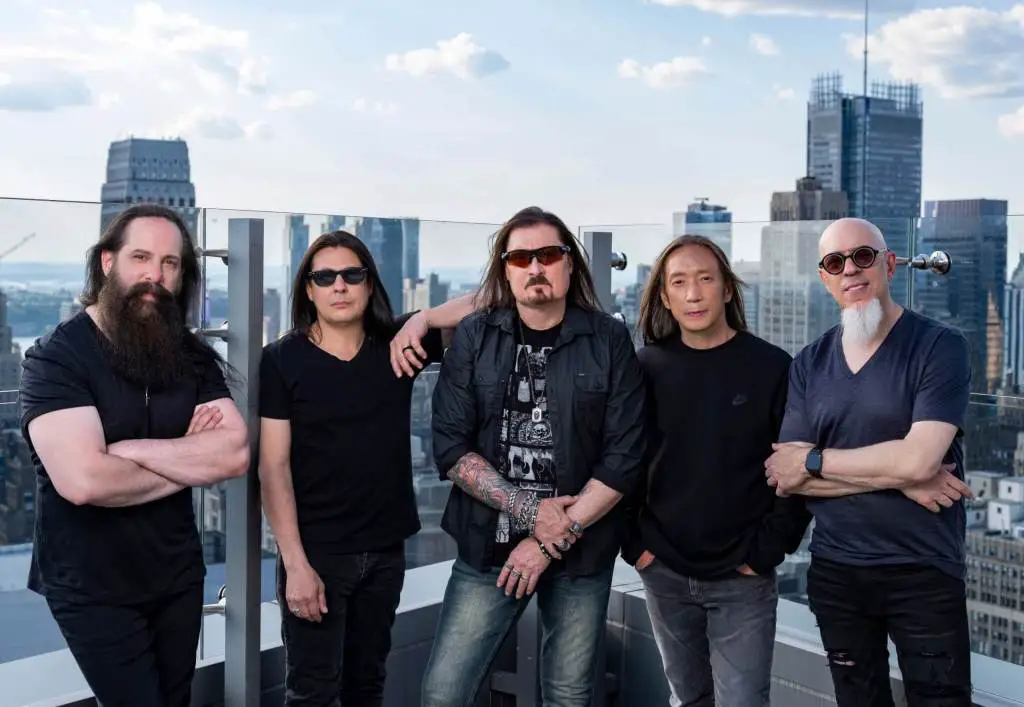
Andrew:
Also of note, Andy Sneap mixed and mastered A View from the Top of the World. I’m curious, how integral was he to the overall end product that we hear?
Jordan:
Andy did a great job. He was very meticulous to every detail. That’s really the difference between him and other people that we’ve worked with. Part of the reality is that we had something that was very together, to begin with. Honestly, Jimmy Meslin, our engineer, he just did a great job, he built in a lot of the effects and had everything so beautifully recorded. And when we gave the record to Andy, he had something really great to work with, and he truly spent the time needed to make sure that it was all perfectly cohesive, and had the exact sound that we were looking for.
Andrew:
I would be remiss if I didn’t mention “The Alien,” which, as you alluded to, gave Dream Theater its first Grammy award. Give us your thoughts on winning your first Grammy, Jordan.
Jordan:
It was very exciting to get that Grammy, as we’ve been nominated three times. And I have to say that I didn’t really expect to get it because I was getting used to being nominated, and not getting it. The other reason I thought we wouldn’t get it is that Dream Theater is really prog metal, and we were in a metal category. I mean, that was the best category for us, but I thought maybe the voters would sort of stick together in that more traditional metal frame of mind. I was really pleased that we got that kind of recognition and validation, and it’s the one award that definitely makes a difference. In a musician’s life, a Grammy can affect your whole career. It changes the way you do business with people, and the way people deal with you. It’s a really big deal. I definitely have to say that it feels really good. We are riding high over it for sure.
Andrew:
I can only imagine the gratification you feel after all these years. As far as “The Alien” goes, walk me through its inception.
Jordan:
What’s interesting about that song is, as you know, it’s not necessarily like the most commercial kind of song – it’s definitely not commercial at all – it’s in this odd time signature. When we started, Mike [Mangini] was doing this crazy time signature thing on drums that inspired us to get the song off the ground. The next thing you know, we were all writing our parts, and it came together. It actually was the first thing that we wrote for the album, so it kind of flowed out from there. It’s cool because it has all the classic Dream Theater elements in it, and that’s what I really liked about the song. It has the unison between me and John Petrucci, it has the keyboards, the great guitar leads, and these crazy meters, but it also has a solid hook. I was glad that we decided to put that out there when the record came out, and have that song be the one that was out front because I think it tells the Dream Theater story really well.
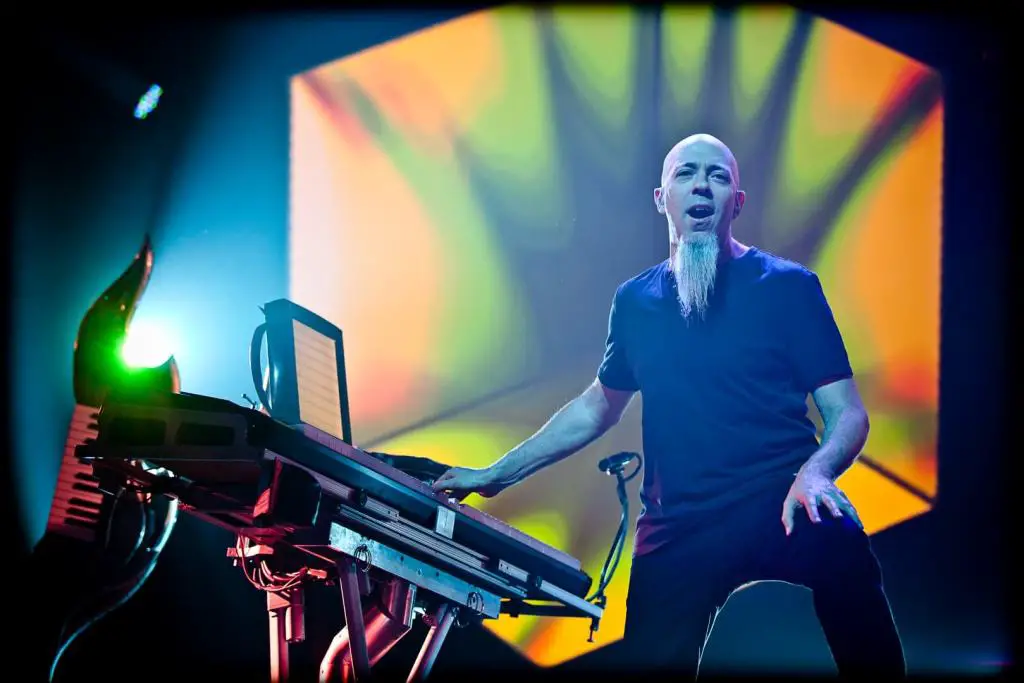
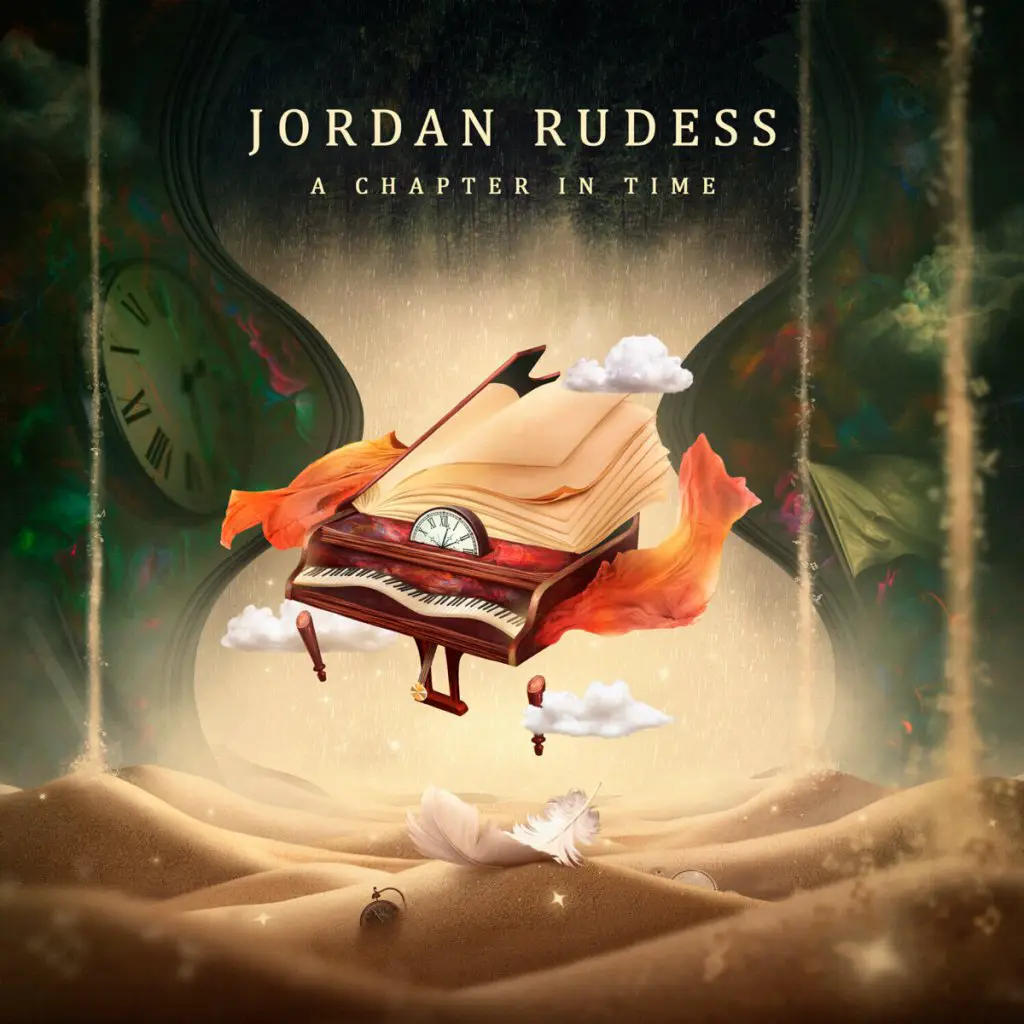
Andrew:
I wanted to touch on your recent solo record, A Chapter In Time. As a solo artist, how does your process differ from when you’re working within the confines of Dream Theater?
Jordan:
Well, one difference is I do my solo albums at home, in my own studio. As a lot of people know, I come from a classical background. I’m a trained pianist, and I have a lot of interests outside of just prog metal. So, doing solo albums gives me a chance to really dive into those things, and it’s really very important to me musically. With A Chapter In Time, that album started out as me just going into the studio and really letting go of my emotions through music. With what we were all going through during the pandemic, and the initial lockdown, it was just a way for me to self-heal. And after a while, I said to myself, “I’ve got a lot of stuff here.” Some of it was kind of personal, but it also felt like something that should be shared, so having the opportunity to do that was awesome. For me, doing things like that is just really important, whether it’s a crazy rock out or personal, piano-based music.
Andrew:
You joined Dream Theater back in ’98, so you’ve been in the band a long time now. Over the years, the band has recorded a tremendous amount of music, with an eye seemingly transfixed on always pushing forward, and never stagnating. To that end, how do you feel you’ve lent yourself to that progression?
Jordan:
Good question. You know, it’s been a really long ride. I remember when we started working together, back in ’98/99, there was a lot for me to learn about the way the guys worked. There’s a lot of information to take in about just being in a band. At that point, I’d never been in a band with that kind of international success. Even talking from my keyboardist point of view, first of all, logistically, just understanding how everything was going to work, like the traveling, the interviews, the sessions, all that was a steep learning curve. And then, musically speaking, when I came into it, I didn’t understand completely what was going to be accepted from my wide assortment of musical instruments. I mean, I knew what Dream Theater was, but they hired me. So, it was interesting to begin to understand what it was that Dream Theater wanted and expected from me. So, over the years, I’ve been able to keep refining and keep changing things to fit the band’s needs. I’m also very into technology, so for Dream Theater, I like to use the latest technology available, and that makes sense within the context of Dream Theater. And that opens up new channels of creation with these beautiful, physically modeled, orchestral instruments. Part of it is about the technology, and how that changes my relationship with the band and the music. And the other thing is just musical, which is always learning, always understanding more about what really works, what really feels right, and how to orchestrate with a guitar that’s as big as my house. [Laughs]. It’s important to harness the band’s real power, and have the keyboard be really meaningful, and musical in that context.
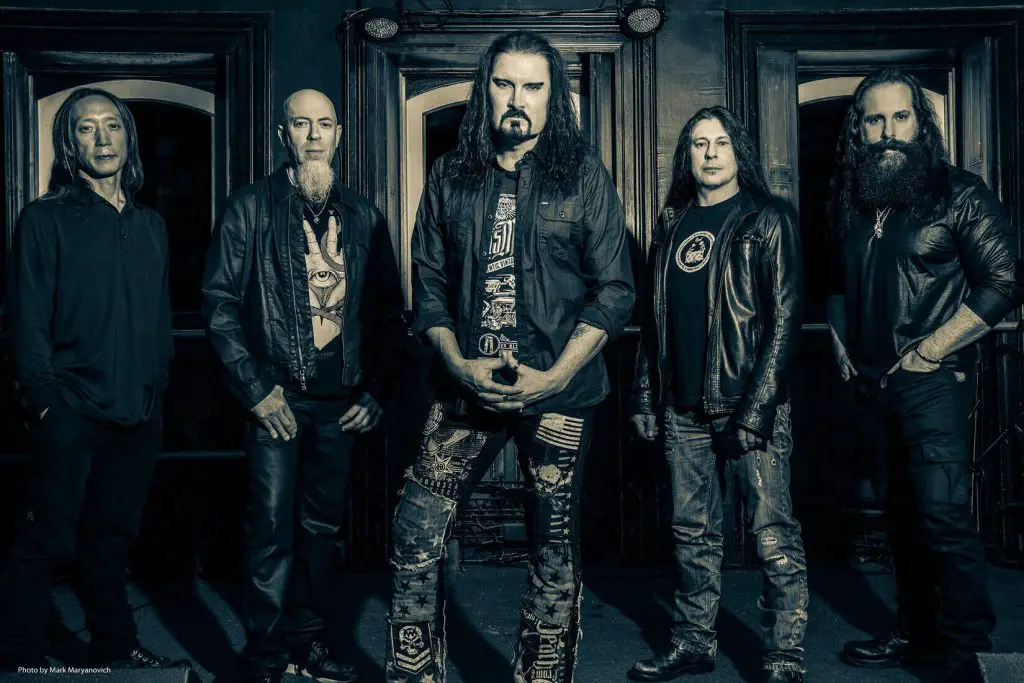
Andrew:
From my perspective, Dream Theater has almost nothing to prove musically. What interests me is you mentioned the validation that the band – any band – would gain from winning a Grammy Award. From your perspective, how would you describe Dream Theater’s present-day importance on both metal and progressive music given that context?
Jordan:
Well, I think that everybody sees Dream Theater as being kind of at the top of the prog metal genre, which is awesome. If I look back, even before I was in the band, when I first heard Dream Theater, they were a band that was putting together a lot of elements. You had the virtuosity, the rock, the metal, and all that kind of stuff, and I think that to a lot of people, Dream Theater is important in terms of paving the way. I like to think that this Grammy will open up the doors to some of these younger groups who are doing some really amazing music. I hope that it will allow them to also be recognized by the rest of the world and the commercial world. I think it will expand us as a band and as a genre. And I think it will really help the genre to grow in a way where people will be encouraged to take a serious look at it.
Andrew:
Last one. What’s next for both yourself as a solo artist and Dream Theater in all lanes, Jordan?
Jordan:
As a solo artist, I actually have planned some solo concerts for the summer. I’m going to be doing some concerts around North America, so that’s really cool. I’m still working out exactly what I want to play, but it’ll definitely involve a lot of piano, and some synthesizer. I’m looking forward to that kicking off. At the same time, I’m very involved with technology, as you know. I’m working with some very cool companies these days in developing a new instrument that’s going to be shown at the next NAMM show, which is in June. Before my solo tour, that will be the first thing I do. Anyway, it’s called the pocket piano. I’m trying to help invent an instrument that I think every keyboardist is going to want to take with them. It’s this portable concept, where you have these pieces of a keyboard that snap together. So, you can basically have an eighty-eight-note keyboard in your backpack, and then take it out anywhere and have a really great-sounding piano. You’ll be able to hook it up to something else – whatever you wanna do.
As for Dream Theater, after we get back from its last show of the European tour we have a bit of a break. And after I finish my solo shows, Dream Theater will continue on the road with some shows in Japan, South America, and more to be announced as we go. When that settles down, we’ll be entering the studio again, and doing a new album, which will be awesome. So, yeah, stuff like that is on the horizon.
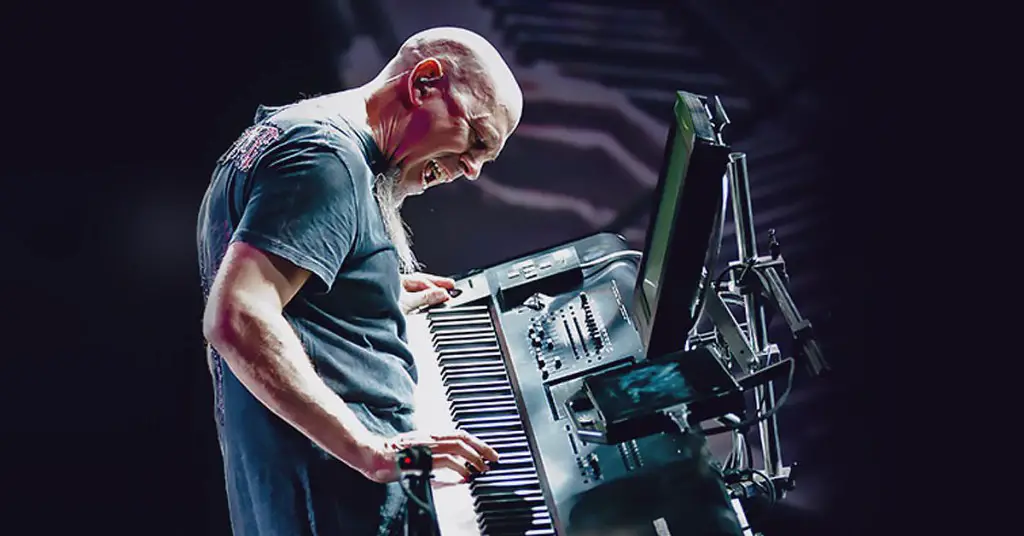
Interested in learning more about Dream Theater? Hit the link below:
Be sure to check out the full catalog of VWMusic Interviews, by Andrew Daly, here: www.vinylwritermusic.com/interviews

Great read!